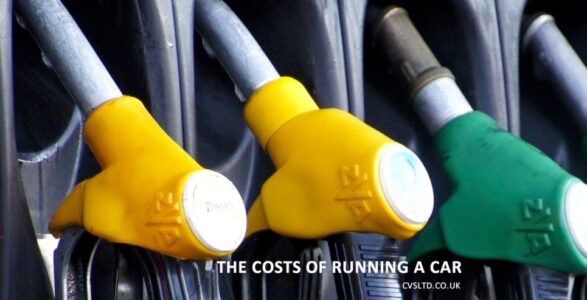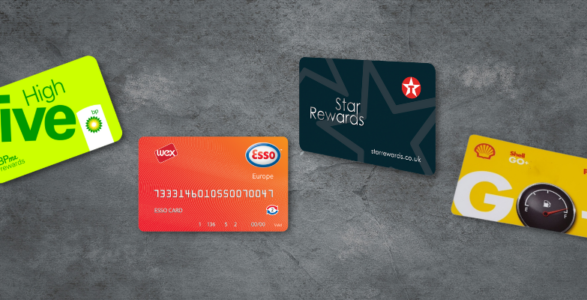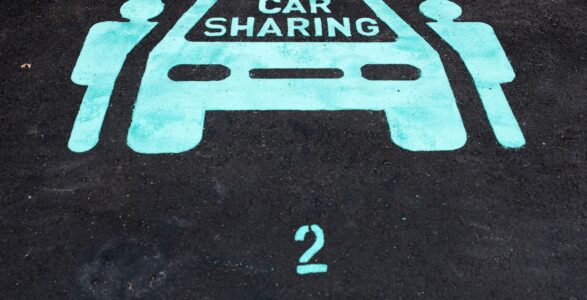Ultra Low Emission Zone (ULEZ) Explained

Updated 14 August 2023 | Published 26 April 2019
On 8 April 2019 the new Ultra Low Emission Zone (ULEZ) came into force in central London.
Phase 2 extended the zone to the boundaries of the north circular and south circular from 25 October 2021.
The Ultra Low Emission Zone (ULEZ) is expanding across all London boroughs from 29 August 2023.
Drivers of older, high polluting vehicles are being charged to enter the congestion zone and it applies 24hrs a day, every day.
Which Vehicles Have to Pay the ULEZ Charge?
The ULEZ scheme uses the European emission standards which has required new car models to meet stringent exhaust pollution limits since the early 1990s. The charge is based on the emissions of the vehicle rather than the age of the vehicle.
Broadly if your car meets the following you should not need to pay the charge.
- Petrol cars and vans must be Euro 4. Vehicles first registered from 2006 onwards should meet the standards. However some vehicles have been available at these standards since 2001.
- Diesel cars and vans must be Euro 6. Vehicles first registered from 2015 onwards should meet the standards.
- You can check whether your vehicle is liable for a charge by entering its registration on the Transport for London website.
- Most vehicles which are not compliant will have to pay £12.50 for entering the area each day, in addition to the congestion charge.
- Anybody who does not pay the charge will face a fine of £160, although a first offence may result in only a warning letter.
Exemptions from the ULEZ Charge
1. ‘Disabled’ and ‘Disabled Passenger Vehicle’ Tax Class grace period
Disabled people whose vehicles are registered with the DVLA as having ‘disabled’ or ‘disabled passenger vehicle’ tax class benefit from a grace period which exempts them from paying the ULEZ charge until 24 October 2027. This is valid as long as their vehicle doesn’t change tax class. Read the eligibility criteria for the disabled tax class exemption.
2. Wheelchair accessible vehicles (WAV) grace period
The grace period for wheelchair-accessible vehicles not meeting ULEZ standards is until 25 October 2027 for approved applicants.
To be eligible, the WAV needs to be fitted with one of the following adaptations:
- Foldable ramp or powered lift for wheelchair access.
- Electric/hydraulic hoist for lifting.
- Swivel seat on passenger/driver side.
- Permanent accelerator ring on steering wheel.
3. Disabled Benefits grace period
This grace period is for people receiving certain disability benefits or those that meet the outlined medical criteria.
Applicants need to be receive one of the following:
- Standard or enhanced mobility rate of Personal Independence Payment (PIP)
- Higher mobility rate of Disability Living Allowance
- Higher mobility rate of Child Disability Payment
- War Pensioners’ Mobility Supplement
- Armed Forces Independence Payment
- Standard or enhanced rate of Adult Disability Payment (ADP)
Or, meet one of the following criteria:
- Be a parent or guardian of a child under the age of 3 with a medical condition that means the child always needs to be accompanied by bulky medical equipment
- Be a parent or guardian of a child under the age of 3 with a medical condition that means the child always needs to be near a vehicle in case they need emergency medical treatment
- Have a terminal illness, which means you cannot walk or find walking very difficult
- Be registered blind (severely sight impaired)
Successful applicants will not need to pay the ULEZ charge for their vehicle until 25 October 2027.
NHS patient reimbursement
If you are clinically assessed as too ill to travel to an appointment on public transport, you may be eligible to claim back any ULEZ charge and/or Congestion Charge you paid from your treating hospital. Your hospital will tell you if you are eligible.
Taxis
London-licensed taxis are exempt from ULEZ charges.
Temporary Exemption for Business and Charity Vehicles in London’s ULEZ
A temporary grace period applies to small businesses (with fewer than 50 employees), micro businesses (with up to 10 employees), charities, and sole traders located within any of the 32 London boroughs or the City of London. If you fall into this category and either:
- Have ordered a newly manufactured light van or minibus that meets ULEZ emissions standards, or
- Have booked your light van or minibus (which doesn’t meet ULEZ emissions standards) to undergo retrofitting by a Clean Vehicle Retrofit Accreditation Scheme (CVRAS) approved fitter to meet ULEZ emissions standards,
You may qualify for a short-term exemption from the ULEZ daily charge for your existing vehicle, as long as the new vehicle’s delivery or retrofitting isn’t scheduled before August 29, 2023.
Each vehicle requires a separate application, and there is no limit to the number of vehicles you can apply for.
Minibuses used for community transport
Many not-for-profit organisations that operate minibuses used for community transport can register for a temporary 100% discount of the ULEZ charge until 26 October 2025. These are minibuses that carry passengers on a not-for-profit basis. For example, for educational, religious, social welfare reasons, or other activities that benefit the community.
Wheelchair-accessible private hire vehicles (PHVs)
Designated wheelchair-accessible PHVs used to carry out a private hire booking will be granted a grace period until 24 October 2027, during which they will be exempt from the ULEZ daily charge.
These vehicles will only be exempt when carrying out a private hire booking for a TfL-licensed PHV operator.
Historic vehicles
You can apply with the DVLA stop paying vehicle tax if your vehicle was built more than 40 years ago. This date moves forward on a 40-year rolling system. For example, when the ULEZ launched in April 2019, vehicles built before 1979 were eligible to apply for historic vehicle tax class.
All vehicles that have a historic vehicle tax class are exempt from the ULEZ. This tax class excludes any vehicle used commercially (for example, coffee vans or street food vans).
In line with the existing LEZ discount all vehicles constructed before 1 January 1973 are exempt from the ULEZ, regardless of commercial use or otherwise.
Other exempt vehicles
A small number of vehicle types currently exempt from the LEZ are also exempt from the ULEZ charge. These include:
- Specialist agricultural vehicles
- Military vehicles
- Non-road going vehicles which are allowed to drive on the highway (for example, excavators)
- Certain types of mobile cranes
Check if you need to register.
Why is the ULEZ Charge Being Implemented?
- Mayor of London Sadiq Khan said it was “important we make progress” in tackling the capital’s toxic air. On 25 October 2021 Sadiq Khan called the expansion of London’s pollution charge zone for older vehicles an ‘issue of social justice’
- The aim of ULEZ is to bring down pollution levels in the city and to bring down pollution related health problems, by reducing the number of polluting cars in the capital. TFL estimate 40,000 vehicles will be affected every day.
- TfL estimates the initial scheme will lead to a reduction in toxic emissions from road transport by about 45% in two years, and the plan is to be compliant with legal limits by 2025.
Ready for a ULEZ-Compliant Drive?
Discover flexible, credit-friendly leasing with CVS Ltd.



